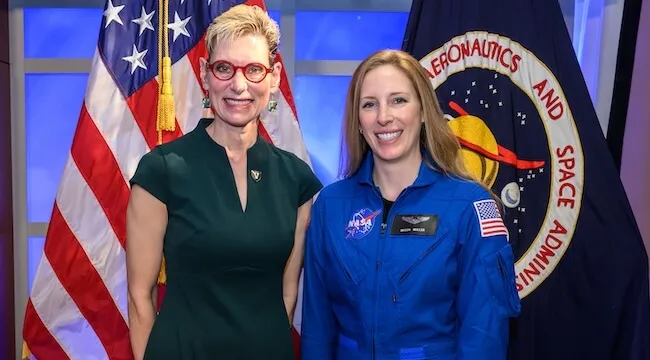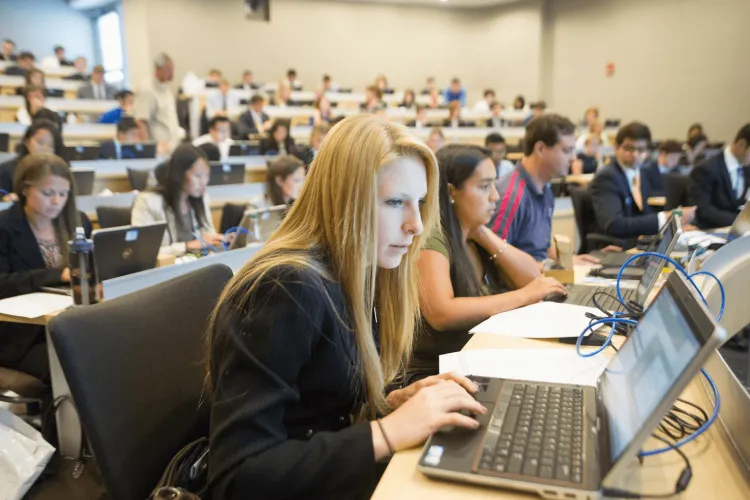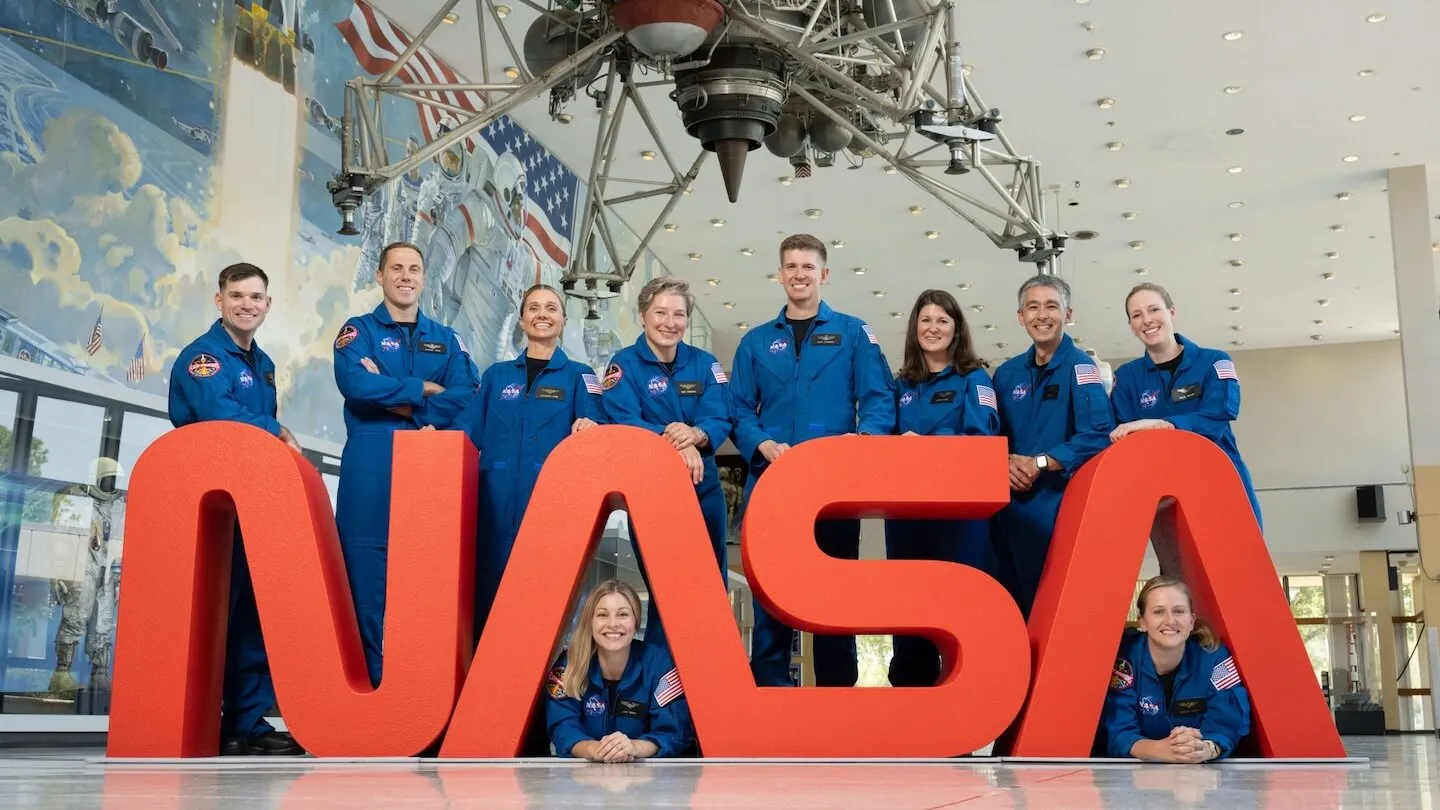Graduates of UVM’s Larner College of Medicine have practiced medicine around the globe; now, one Larner alum is poised to work above the globe–possibly far, far above it. On Monday, September 22, NASA named Imelda Muller, M.D., as one of ten new members of its next class of astronaut candidates.
The ten astronaut candidates were selected from a pool of nearly 8,000 applicants. Muller’s class is the 24th group of astronaut candidates to be selected by NASA since the first–the famed “Mercury Seven”–were chosen in 1959.
Muller, 34, who grew up in Copake Falls, N.Y., received her UVM medical degree in 2017. Prior to entering medical school, she earned a bachelor’s degree in behavioral neuroscience from Northeastern University.
“With upcoming exploration missions, we are pushing the boundaries of human performance and the lessons that we learn, the knowledge that we gain, all of these things are going to help us to excel not just in space, but in areas of human health here on earth," said Muller. “The future of space medicine is now, and I'm incredibly honored to be here with this team.”

Muller is a former lieutenant in the U.S. Navy and, after training at the Naval Undersea Medical Institute, served as an undersea medical officer. She later provided medical support for Navy operational diving training at NASA’s Neutral Buoyancy Laboratory at the Johnson Space Center in Houston.
“The future of space medicine is now, and I'm incredibly honored to be here with this team.” –Imelda Muller, M.D.'17
After receiving her medical degree from UVM, Muller went on to a transitional year at the Naval Medical Center in San Diego, Calif., and later entered a residency in anesthesia and critical care medicine at Johns Hopkins School of Medicine. At Hopkins she has also been associated with its Human Spaceflight Lab.
“The UVM community is thrilled to see Dr. Imelda Muller joining NASA’s newest cadre of astronaut candidates,” said UVM President Marlene Tromp, who was present at the announcement event at the Johnson Space Center. “UVM’s Larner College of Medicine has always produced physicians who make a positive and profound impact on Vermont and the wider world. It’s wonderful to think that Dr. Muller has already extended that mission to the depths of the seas, in her work for Naval Sea Systems, and now into the stars. We are so proud to call Dr. Muller a UVM alum."

Muller and her nine fellow astronaut candidates will now begin a two-year training regimen that will include courses in geology, training in land and water survival, and simulations of spacewalks in the Neutral Buoyancy Lab.
At the NASA announcement, Muller reflected on her work as an undersea medical officer with the Navy, and its applicability to her future work.
“That experience gave me the opportunity to work with multidisciplinary teams in experimental and saturation diving, and I developed a passion for learning about the way the body adapts in extreme environments,” said Muller. “This led me to pursue medical residency training in anesthesia, where I deepened that understanding of how our body responds when it's under stress.”
“We are immensely proud of Dr. Imelda Muller’s selection as a member of NASA’s 2025 astronaut class. Her journey from Larner to the launchpad exemplifies the spirit of innovation, resilience, and service that we strive to instill in all students. This opportunity is not only a testament to her extraordinary dedication but also a shining moment for our entire medical community,” said Richard L. Page, M.D., dean of the University of Vermont Robert Larner, M.D. College of Medicine and UVM chief medical affairs officer.
UVM maintains a close research connection with NASA, the most prominent being the Vermont Space Grant Consortium, part of a national network of colleges and universities connecting NASA with the educational and research institutions of the United States. The space Grant is a NASA partner dedicated to connecting Vermonters interested in science, technology, engineering, and mathematics with opportunities to work on NASA projects or alongside NASA professionals.
In addition, a number of fourth-year Larner medical students have taken part in NASA’s four-week Aerospace Medicine Clerkship at the Johnson Space Center. According to NASA, that clerkship “involves formal lectures on space medicine topics and issues, familiarization with the medical aspects of International Space Station operations, design, and function as well as Exploration Medical Capability for deep space exploration.”
